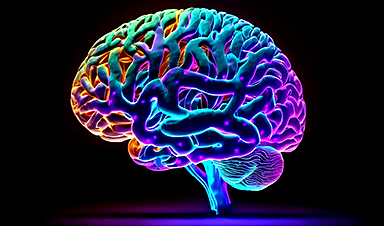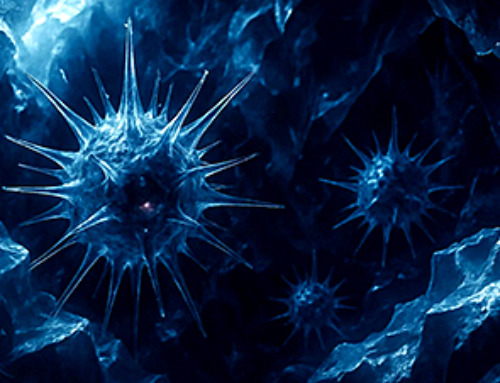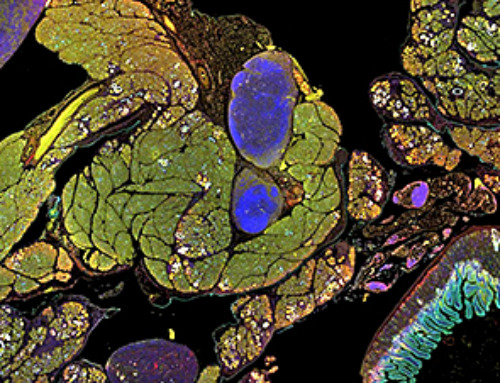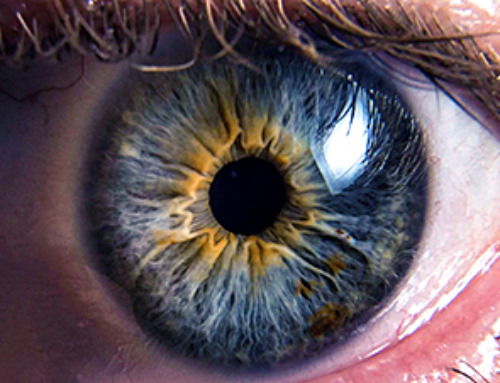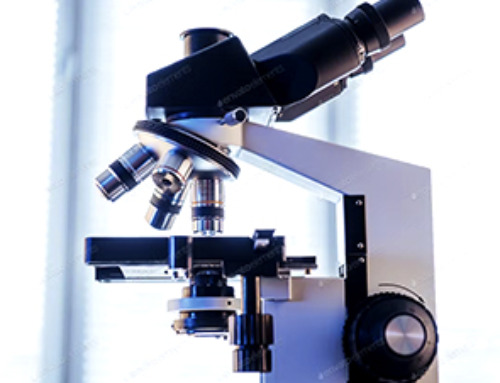Researchers at Johns Hopkins University have developed a novel hydrogel that has successfully cured 100% of mice with aggressive brain cancer, specifically glioblastoma. The hydrogel combines an anticancer drug and an antibody, and is applied to the brain after the surgical removal of a tumor. This treatment reaches areas that surgery might miss and current drugs struggle to access, killing lingering cancer cells and suppressing tumor growth. The gel also seems to activate an immune response, helping the body fight against glioblastoma without additional medication. While surgery is still essential for this approach, the hydrogel shows promising results and offers new hope for glioblastoma patients.
Medication delivered by a novel gel cured 100% of mice with an aggressive brain cancer, a striking result that offers new hope for patients diagnosed with glioblastoma, one of the deadliest and most common brain tumors in humans.
“Despite recent technological advancements, there is a dire need for new treatment strategies,” said Honggang Cui, a Johns Hopkins University chemical and biomolecular engineer who led the research. “We think this hydrogel will be the future and will supplement current treatments for brain cancer.”
The gel also seems to trigger an immune response that a mouse’s body struggles to activate on its own when fighting glioblastoma. When the researchers rechallenged surviving mice with a new glioblastoma tumor, their immune systems alone beat the cancer without additional medication. The gel appears to not only fend off cancer but help rewire the immune system to discourage recurrence with immunological memory, researchers said.
Still, surgery is essential for this approach, the researchers said. Applying the gel directly in the brain without surgical removal of the tumor resulted in a 50% survival rate.
“The surgery likely alleviates some of that pressure and allows more time for the gel to activate the immune system to fight the cancer cells,” Cui said.
The gel solution consists of nano-sized filaments made with paclitaxel, an FDA-approved drug for breast, lung, and other cancers. The filaments provide a vehicle to deliver an antibody called aCD47. By blanketing the tumor cavity evenly, the gel releases medication steadily over several weeks, and its active ingredients remain close to the injection site.
By using that specific antibody, the team is trying to overcome one of the toughest hurdles in glioblastoma research. It targets macrophages, a type of cell that sometimes supports immunity but other times protects cancer cells, allowing aggressive tumor growth.
One of the go-to therapies for glioblastoma is a wafer co-developed by a team of researchers at Johns Hopkins and the Massachusetts Institute of Technology in the 1990s, commercially known as Gliadel. It is an FDA-approved, biodegradable polymer that also delivers medication into the brain after surgical tumor removal.
Gliadel showed significant survival rates in laboratory experiments, but the results achieved with the new gel are some of the most impressive the Johns Hopkins team has seen, said Betty Tyler, a co-author and associate professor of neurosurgery at the Johns Hopkins School of Medicine who played a pivotal role in the development of Gliadel.
“We don’t usually see 100% survival in mouse models of this disease,” Tyler said. “Thinking that there is potential for this new hydrogel combination to change that survival curve for glioblastoma patients is very exciting.”
The new gel offers hope for future glioblastoma treatment because it integrates anticancer drugs and antibodies, a combination of therapies researchers say is difficult to administer simultaneously because of the molecular composition of the ingredients.
“This hydrogel combines both chemotherapy and immunotherapy intracranially,” Tyler said. “The gel is implanted at the time of tumor resection, which makes it work really well.”
Johns Hopkins co-author Henry Brem, who co-developed Gliadel in addition to other brain tumor therapies currently in clinical trials, emphasized the challenge of translating the gel’s results in the lab into therapies with substantial clinical impacts.
“The challenge to us now is to transfer an exciting laboratory phenomenon to clinical trials,” said Brem, who is neurosurgeon-in-chief at Johns Hopkins Hospital.
News
Studies detail high rates of long COVID among healthcare, dental workers
Researchers have estimated approximately 8% of Americas have ever experienced long COVID, or lasting symptoms, following an acute COVID-19 infection. Now two recent international studies suggest that the percentage is much higher among healthcare workers [...]
Melting Arctic Ice May Unleash Ancient Deadly Diseases, Scientists Warn
Melting Arctic ice increases human and animal interactions, raising the risk of infectious disease spread. Researchers urge early intervention and surveillance. Climate change is opening new pathways for the spread of infectious diseases such [...]
Scientists May Have Found a Secret Weapon To Stop Pancreatic Cancer Before It Starts
Researchers at Cold Spring Harbor Laboratory have found that blocking the FGFR2 and EGFR genes can stop early-stage pancreatic cancer from progressing, offering a promising path toward prevention. Pancreatic cancer is expected to become [...]
Breakthrough Drug Restores Vision: Researchers Successfully Reverse Retinal Damage
Blocking the PROX1 protein allowed KAIST researchers to regenerate damaged retinas and restore vision in mice. Vision is one of the most important human senses, yet more than 300 million people around the world are at [...]
Differentiating cancerous and healthy cells through motion analysis
Researchers from Tokyo Metropolitan University have found that the motion of unlabeled cells can be used to tell whether they are cancerous or healthy. They observed malignant fibrosarcoma cells and [...]
This Tiny Cellular Gate Could Be the Key to Curing Cancer – And Regrowing Hair
After more than five decades of mystery, scientists have finally unveiled the detailed structure and function of a long-theorized molecular machine in our mitochondria — the mitochondrial pyruvate carrier. This microscopic gatekeeper controls how [...]
Unlocking Vision’s Secrets: Researchers Reveal 3D Structure of Key Eye Protein
Researchers have uncovered the 3D structure of RBP3, a key protein in vision, revealing how it transports retinoids and fatty acids and how its dysfunction may lead to retinal diseases. Proteins play a critical [...]
5 Key Facts About Nanoplastics and How They Affect the Human Body
Nanoplastics are typically defined as plastic particles smaller than 1000 nanometers. These particles are increasingly being detected in human tissues: they can bypass biological barriers, accumulate in organs, and may influence health in ways [...]
Measles Is Back: Doctors Warn of Dangerous Surge Across the U.S.
Parents are encouraged to contact their pediatrician if their child has been exposed to measles or is showing symptoms. Pediatric infectious disease experts are emphasizing the critical importance of measles vaccination, as the highly [...]
AI at the Speed of Light: How Silicon Photonics Are Reinventing Hardware
A cutting-edge AI acceleration platform powered by light rather than electricity could revolutionize how AI is trained and deployed. Using photonic integrated circuits made from advanced III-V semiconductors, researchers have developed a system that vastly [...]
A Grain of Brain, 523 Million Synapses, Most Complicated Neuroscience Experiment Ever Attempted
A team of over 150 scientists has achieved what once seemed impossible: a complete wiring and activity map of a tiny section of a mammalian brain. This feat, part of the MICrONS Project, rivals [...]
The Secret “Radar” Bacteria Use To Outsmart Their Enemies
A chemical radar allows bacteria to sense and eliminate predators. Investigating how microorganisms communicate deepens our understanding of the complex ecological interactions that shape our environment is an area of key focus for the [...]
Psychologists explore ethical issues associated with human-AI relationships
It's becoming increasingly commonplace for people to develop intimate, long-term relationships with artificial intelligence (AI) technologies. At their extreme, people have "married" their AI companions in non-legally binding ceremonies, and at least two people [...]
When You Lose Weight, Where Does It Actually Go?
Most health professionals lack a clear understanding of how body fat is lost, often subscribing to misconceptions like fat converting to energy or muscle. The truth is, fat is actually broken down into carbon [...]
How Everyday Plastics Quietly Turn Into DNA-Damaging Nanoparticles
The same unique structure that makes plastic so versatile also makes it susceptible to breaking down into harmful micro- and nanoscale particles. The world is saturated with trillions of microscopic and nanoscopic plastic particles, some smaller [...]
AI Outperforms Physicians in Real-World Urgent Care Decisions, Study Finds
The study, conducted at the virtual urgent care clinic Cedars-Sinai Connect in LA, compared recommendations given in about 500 visits of adult patients with relatively common symptoms – respiratory, urinary, eye, vaginal and dental. [...]
